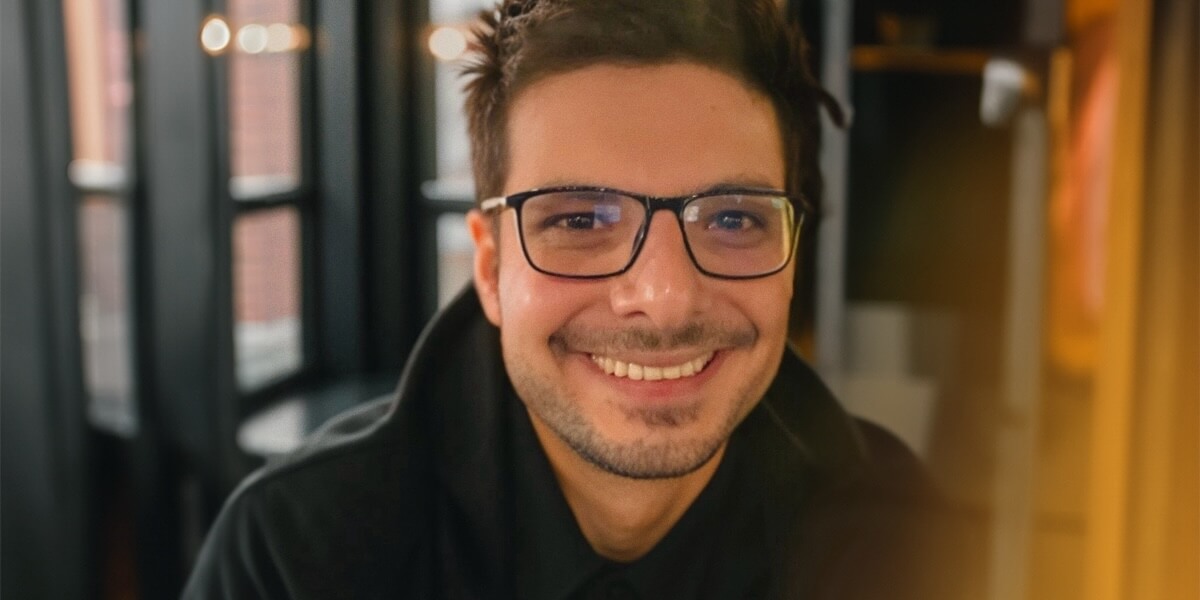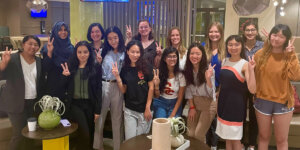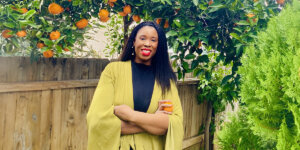
Mohamad Awada (photo courtesy/ Mohamad Awada)
Mohamad Awada, a fifth-year Ph.D. student in USC Viterbi’s Sonny Astani Department of Civil and Environmental Engineering, received the USC Ph.D. Achievement Award for 2024. He was one of six USC students chosen for the university’s highest honor for exemplary research.
Students are selected for this prestigious award by the USC Graduate School based on records of strong academic achievement, including collaborating or authoring significant publications; receiving job offers that reflect an outstanding quality of the student’s doctoral work; earning widely recognized distinctions or awards; and other markers of excellence relevant to the student’s studies.
Awada’s academic journey began at the American University of Beirut where he earned a bachelor’s degree in civil engineering and a master’s in construction management. Awada joined USC in Fall 2019 to pursue a Ph.D. in the area of human-building. Under the auspices of Professor Burcin Becerik-Gerber, Astani Department chair, Awada focused his doctoral studies on creating smart spaces equipped with technologies that can detect and reduce stress, prevent mental fatigue and alert individuals of health dangers or emergencies.
Take someone with dementia: they might forget to take medication, turn off the oven, or lock the doors to their home. Equipping a home with smart technology could remind people with diminished mental capabilities to perform such quotidian, and even lifesaving, tasks. The applications are limitless.
We spoke to Awada, who recently accepted a position at New York University as an assistant professor in the Department of Civil and Urban Engineering, about his research. The following Q&A is edited for style and clarity:
How does it feel to have received the USC Ph.D. Achievement Award for 2024?
It’s incredibly humbling. This award isn’t just about my work. It’s more a reflection of the great support and inspiration received from my mentors, peers and the entire USC community. It really shows the passion and dedication that drives us into academic research. Moreover, receiving the USC Ph.D. Achievement Award has reinforced my commitment to contributing meaningfully to my field. Overall, receiving this award has been a mixture of gratitude, motivation and a powerful reminder of the impact we can have when we are dedicated to scholarship.
Why did you choose USC to pursue your Ph.D.?
Choosing USC was a decision that felt right for several reasons. First, it’s clear that USC puts students at the forefront and prioritizes our success and wellbeing. This was extremely important to me. Since I was going to stay here for five years, I needed to feel like I was cared about. In terms of research, USC is unique in its emphasis on collaboration, and this spoke to me about the kind of innovative environment USC offers. And really, what sealed the deal was the chance for me to work with my advisor [Professor] Burcin Becerik-Gerber who is a leading researcher in the field of human building interaction. Creating spaces that enhance human well-being is my passion and working with the distinguished Burcin Becerik-Gerber is a really special opportunity. These are from the academic perspective, but let’s be honest, the idea of sunny skies didn’t hurt either.
Can you give me a brief overview of your research?
My research focuses on how we can make our living and working spaces smarter and more responsive to our needs, particularly when it comes to health and well-being. Imagine you are walking into a room that knows you, can detect that you had a stressful day, and responds by automatically dimming the light and playing relaxing music to help you unwind. Or imagine your office can recognize signs of mental fatigue and respond by asking you to relax and adjust the lighting and ergonomic set up to help you stay focused. We’re essentially using sensing devices and creating smart spaces to detect health symptoms. These spaces will be able to adapt and respond in ways that will be able to mitigate any negative health consequences. More or less, it’s about creating environments that not only understand our physical and emotional states, but also actively work to make us feel better. There is a huge potential for these smart and adaptive spaces for enhancing our everyday lives.
What attracted you to this idea of smart spaces?
What really started this journey was the pandemic. My Ph.D. started, and then the pandemic immediately happened. For two years, I had to stay home. Living through this pandemic was a wakeup call. It showed how important the buildings and spaces we live in are. During the pandemic, we found ourselves trying to make our homes safe spaces against an unsafe enemy: COVID-19. The experience got me thinking about the concept of healthy buildings. How do we design, construct and operate our spaces with health and well-being at the forefront?
Why are smart spaces important?
This research matters because our surroundings play a huge role in our health and well-being. It is a well-known fact that we, on average, spend 90% of our lives indoors. If we spend most of our lives indoors, it makes sense that these places should be able to support our health and go beyond simply providing shelter. By creating environments that can detect when we’re not feeling great and can adjust to make us feel better, we are greatly improving the quality of human life.
Why do you want to become a professor?
I want to teach the next wave of students to implement innovative technologies like AI, sensing techniques, and virtual reality in our civil engineering work. At USC, I’ve learned a lot about pushing the boundaries of technology. Good engineers don’t just build things. They ensure that what we build is going to be beneficial to the end user, which in this case ends up being us. My time at USC has made me super excited to share what I’ve learned and get more people interested in making healthier and smarter spaces.
Published on April 23rd, 2024
Last updated on April 23rd, 2024













